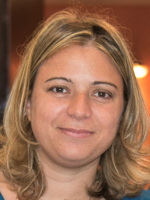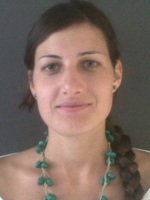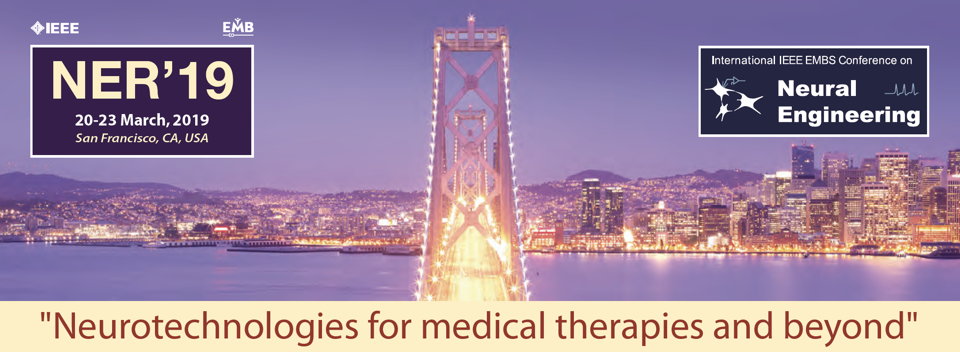Neuroplasticity regulates behavior and learning, thus a key factor for driving appropriate neurorehabilitation is to suitably target and modulate brain plasticity. Technological development is, on one hand progressively allowing to precisely monitor brain activity and, on the other hand, to perform sophisticated targeted neurostimulation protocols, able to shape neuroplasticity. These technological achievements are now being translated into useful clinical applications, aimed at treating neurological diseases with innovative methods, such as closed loop neuromodulation and patient tailored approach. However, these neurotechnological and clinical innovations raise important ethical issues that urge to be addressed, both on a general (i.e. society) and a personal (i.e. patient) perspective.
It is the goal of this workshop to bring together all the features surrounding the world of neuroplasticity and to provide an overview of the main view points from which neuroplasticity can be observed: technological development, clinical applications and the possibly involved ethical aspects. This half-day workshop will indeed focus: on one hand, on the latest technological development aimed at promoting or exploring the mechanisms of neuroplasticity, i.e. closed loop system, neuromodulation effects, and brain-driven stimulation; on the other hand it will address clinical studies exploiting neuroplasticity for promoting recovery, in case of stroke or other neurological disorders. Moreover, it will be stressed the urgent need to address all the ethical implications of brain-related technologies and manipulation, such as neuroprosthetics, neuromodulation and closed loop devices.
Organizers
Michela Chiappalone
 M. Chiappalone’s research interests are in the field of Neuroengineering. She obtained a PhD in Electronic Engineering and Computer Science from University of Genova (Italy) in 2003. In 2002 she has been visiting scholar at the Dept of Physiology, Northwestern University (Chicago, IL, USA). After a Post Doc at the University of Genova, in 2007 she joined the Neuroscience and Brain Technologies Dept at the Istituto Italiano di Tecnologia (IIT) as a Post Doc. In 2013 she got a group leader position (‘Researcher’) in the same Institution. In 2015 she has been visiting Professor at KUMED (Kansas City, KS, USA), hosted by Prof. R.J. Nudo.
M. Chiappalone’s research interests are in the field of Neuroengineering. She obtained a PhD in Electronic Engineering and Computer Science from University of Genova (Italy) in 2003. In 2002 she has been visiting scholar at the Dept of Physiology, Northwestern University (Chicago, IL, USA). After a Post Doc at the University of Genova, in 2007 she joined the Neuroscience and Brain Technologies Dept at the Istituto Italiano di Tecnologia (IIT) as a Post Doc. In 2013 she got a group leader position (‘Researcher’) in the same Institution. In 2015 she has been visiting Professor at KUMED (Kansas City, KS, USA), hosted by Prof. R.J. Nudo.
From 2012 to 2015 M. Chiappalone has been Coordinator of the FET Open European Project BrainBow, judged excellent. In 2017, M. Chiappalone joined the Rehab Technologies IIT-INAIL Joint Lab of IIT to lead a group aimed at interfacing robotic devices with the nervous system for applications in neuroprosthetics, neuromodulation and neurorehabilitation. In 2018 she got the national scientific habilitation as Full Professor of Bioengineering.
She authored 60 papers published in International Journals, 50 peer-reviewed contributions to International Conferences, 8 Book Chapters and she gave more than 60 scientific talks at International/National Conferences and Research Institutions.
Marianna Semprini
 Marianna Semprini got a BS in Biomedical Engineering and a MS in Bioengineering (Neuroengineering curriculum) both at the University of Genoa in 2004 and 2007 respectively. In 2007 she was research fellow at Northwestern University. In 2011 she received a PhD in Robotics, Neurosciences and Nanotechnologies from the Italian Institute of Technology.
Marianna Semprini got a BS in Biomedical Engineering and a MS in Bioengineering (Neuroengineering curriculum) both at the University of Genoa in 2004 and 2007 respectively. In 2007 she was research fellow at Northwestern University. In 2011 she received a PhD in Robotics, Neurosciences and Nanotechnologies from the Italian Institute of Technology.
Marianna Semprini has a background on BMIs able to restore sensory or motor functions when missing. She investigated the role of sensory feedback in in-vivo closed-loop BMIs based on real-time encoding of information through intracortical microstimulation. She also studied the response properties of cortical neurons and worked on optimal decoding of the information carried by neural signals.
More recently, she focused on non-invasive biofeedback from human subjects and on sensorimotor training for motor rehabilitation of neurologic or brain-injured patients. Her current interests are neuroprostheses, neural control of movement and high density Electroencephalography
Speakers
Michela Chiappalone and Marianna Semprini (Istituto Italiano di Tecnologia)
José del R. Millán (École Polytechnique Fédérale De Lausanne, Lausanne, Switzerland)
Randolph Nudo (University of Kansas, USA)
Franca Tecchio (National Research Council, Italy)
Christoph Zrenner (University Hospital Tübingen, Germany)
Brigitte Zrenner (University Hospital Tübingen, Germany)
